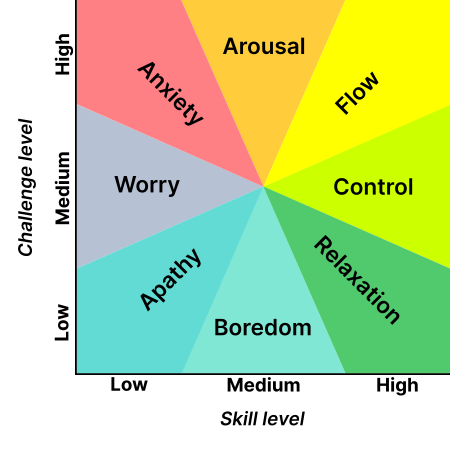-
The flow state pertains to the state of mind where:
- There is:
- A challenging activity that requires skills. The flow activity is not passively experienced. It requires active and directed engagement.
- Clear goals. No distractions.
- Clear feedback.
- The Paradox of Control - the participant is able to exercise control without completely being in control of the situation.
- If there is no chance of failure, the activity is not difficult enough
- If the participant has no control, they probably do not have sufficient skill level.
- And the participant experiences:
- Merged actions and awareness The person stops being aware of themselves as separate from the actions they are performing
- Concentration. Flow activities carve out their own experiential spaces for participants.
- Loss of Self-Consciousness - the participant’s sense of self is subservient to the greater whole of the experience. He becomes a part of the larger system.
- The Transformation of Time - the feeling that time shrinks or stretches.
- There is:
-
It is the emotional and psychological state of focused and engaged happiness.

- During experiences, we move from different parts of the figure above. For example, if we are anxious about an activity, we can decrease the level of challenge we impose upon ourselves.
- Repeatedly doing such an experience, pushes one higher and higher in the “flow channel”, where there is higher challenge and higher level of skill.
- This is why flow leads to growth and discovery.